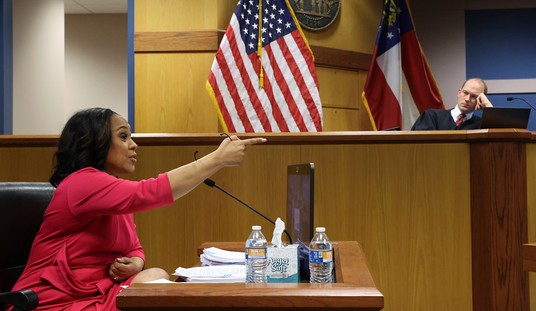One of the things which makes Wisconsin Governor Scott Walker such an attractive presidential candidate is the resoluteness of his fight for the Wisconsin taxpayer.
He has fought against the political domination of far-Left unions like AFSCME, SEIU, and the NEA-affiliated teachers’ union WEAC. In the course of that struggle, Walker has won three elections, the middle one being the historic recall election in which a sitting governor resisted an attempted recall for the first time in U.S. history. He won more votes than he had in the original election in 2010.
As a result of that bruising fight, if any of the likely Republican candidates can be said to be “vetted,” it’s Walker.
The American Left is terrified of him, and its minions keep trying to find a way to bring him down. One such effort has been the “John Doe” probe into the finances of Walker’s campaigns. Wisconsin’s John Doe law is a particularly totalitarian piece of legislation which enables a prosecutor to conduct wide-ranging, intrusive secret investigations based on a legal theory. In the case of the current probe, the theory worked up by prosecutor Francis Schmitz is that conservative organizations supporting Walker and the Republican agenda generally are somehow in collusion with the Walker campaign.
The chief “evidence” of this is the fact that R.J. Johnson, director of the Wisconsin Club for Growth (one of the named organizations), was Scott Walker’s campaign manager during the recall election.
The probe — which, it must be emphasized, has never been able to uncover a scintilla of any wrongdoing by Walker — was brought to a halt in January 2014. Presiding judge Gregory Peterson quashed several subpoenas which Schmitz and his team had sought on the grounds that they had failed to show probable cause that any crime had been committed.
This, however, was after the prosecutors had been allowed to conduct late-night raids of the homes and offices of senior members of these organizations. They confiscated computers and files, even computers belonging to the children of the alleged perpetrators, who were rousted from bed and terrorized by agents of the probe.
In January of this year, a federal judge filed a declaratory judgment forbidding Schmitz and his partner in the probe, Milwaukee District Attorney John Chisholm, from investigating or prosecuting such issue-advocacy groups as the Wisconsin Club for Growth. He also ruled that the state’s campaign finance law under which they were trying to operate was unconstitutional.
As the old saying goes, when you don’t like the judgment, you shop for a different judge. The probe has been the subject of a welter of lawsuits and countersuits, which will be coming before the Wisconsin Supreme Court in consolidated form for oral arguments this spring.
Last month, Schmitz filed under seal a “Motion for Recusal and Notice of Ethical Concerns” as indicated in a notation in court records dated February 12. Though it is impossible to know in detail whose recusal Schmitz is seeking, because it was filed under seal it is widely and plausibly believed that he would like at least one of the four justices counted as “conservative.” This is because — surprise — the conservative organizations who are the objects of his probe supported conservative judges. Hence, it is believed, there are “ethical concerns.”
Now, the New York Times has seen fit to editorialize on the matter, bringing it to national attention, surely because the governor has been leading in Republican presidential polls and could be the most formidable GOP candidate.
The Times cites, to support its editorial position, a case in which a West Virginia Supreme Court justice cast a tie-breaking vote reversing a $50M jury verdict against a coal company. This was overturned by a 5-to-4 majority of the United States Supreme Court on the grounds that the coal baron had spent $3M in support of the judge’s election.
But, as reporter M.D. Kittle points out in the Wisconsin Reporter in February 19, 2015, it is not only the conservative justices who ought to be the subject of Schmitz’s “ethical concerns.”
In an affidavit filed on December 19, 2013, Schmitz himself admits that Judge Barbara Kluka had originally been appointed presiding judge over the John Doe investigation by Milwaukee County Chief Judge Jeffrey Kremers. This was at the explicit direction of Chief Justice of the Wisconsin Supreme Court Shirley Abrahamson (whom nobody accuses of being “conservative”) on September 5, 2012. Kluka subsequently recused herself from the case with no explanation in October 2013, shortly after signing off on the subpoenas and warrants authorizing the pre-dawn raids on offices and homes. Her successor was Judge Peterson.
Interestingly, despite an explicit state law which requires that a judge who recuses from a case supply a written explanation, no such explanation is in evidence in the court records surrounding the probe. If Kluka in fact had a conflict of interest during the 13 months she presided over the case, then the subpoenas and affidavits in question could, and arguably should, be ruled invalid.
Abrahamson is well known for her judicial activism in Leftist causes, and has been widely accused of actively recruiting and supporting candidates to run against conservative justices. She should therefore have at least as much a conflict of interest in the case as any of the conservative justices believed to be the subjects of Schmitz’s motion.
But of course, her recusal would not permit the court to rule in Schmitz’s favor, reinstate the John Doe probe, and embarrass Scott Walker. So the Times, printing all the news that fits its chosen narrative, does not mention her conflict.









Join the conversation as a VIP Member